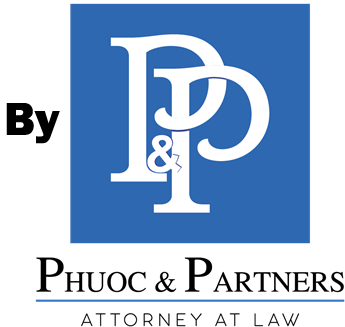
DEBT COLLECTION STRATEGY
In the modern business environment, debt collection can be considered an important and inevitable activity of many businesses. Debt collection strategy is not merely about collecting money from customers, but also a process that requires careful legal consideration to ensure that it does not violate current legal regulations and still maintains business relationships with partners. The article Debt Collection Strategy will provide readers with effective debt collection strategies , helping businesses optimise their processes and minimise the associated financial risks.
Legal regulations on debt collection
Since the Law on Investment 2020 came into effect on 01 January 2021, the business line “Debt collection service business” has been added to the list of industries and trades banned from business investment. Therefore, the debt collection will be carried out in accordance with the provisions of the civil law and other relevant laws.
According to the provisions of the Law on Credit Institutions 2010, unsecured lending activities are only carried out by banks, non-bank credit institutions and microfinance institutions under the supervision of the State Bank. In case the lender is an individual, the borrowing relationship is governed by the provisions of the Civil Code 2015. In addition, debt collection in commercial transactions is a very common activity today, arising between the performance of commercial contracts, service contracts, and construction contracts between enterprises. In essence, these debts are purchases or service costs that the obligor is late in paying under the contract, therefore, the Commercial Law 2005 and the Civil Code 2015 are the legal documents that govern most of this issue.

Effective debt collection strategy
Preparing for debt collection
During the debt collection preparation stage, the debt collector needs to take steps to assess the debt in detail and the obligor’s ability to collect the debt to ensure that the process takes place efficiently and legally. First of all, the party that needs to recover the debt must determine the debt in detail, check the principal amount, payment term, interest debt and late payment period, thereby calculating the total amount of debt to be recovered. At the same time, the party that needs to recover the debt must also fully prepare the contracts, invoices, vouchers and other evidence to prove each principal debt.
In addition, learning about the debtor’s current financial situation to assess the ability to collect debts is an inevitable step before proceeding with debt recovery. Accordingly, the debt collector can verify the financial condition of the debtor who is the enterprise through public information sources such as the company’s website, articles, annual reports, and other publicly available documents or check the collateral information on the National Registry of Secured Transactions and Credit Status on the website of the National Credit Information Center.
In addition, the party that needs to recover the debt also needs to pay attention to the statute of limitations for initiating a lawsuit against the debtor to the competent dispute settlement agency to ensure that the negotiation and working process does not exceed this statute of limitations.
Remind debt over the phone and send a letter requesting payment
Phone reminders and sending reminder letters are the most common and least expensive methods of debt collection. According to the provisions of Circular 18/2019/TT-NHNN of the State Bank, financial companies must comply with the regulations on the maximum number of debt reminders of 5 times a day, and only do so in the period from 7 am to 9 pm. Companies must not use threatening measures against customers, and must not send information about debt collection to organisations and individuals who are not obligated to repay debts. Therefore, debt reminder strategies should be implemented in a professional, courteous manner and within the scope of the law.
For businesses that need to recover debts arising from commercial business transactions, contacting the debtor in writing is a more formal and professional method than making a phone call. A letter of demand for payment can be used as evidence in the event of a dispute to prove that the party has exercised its right to demand payment.
Extension of payment time and installment plan
To support customers facing financial difficulties, businesses can apply a policy of extending the payment period without applying interest for the late payment period. This policy gives customers more time to arrange their finances and maintain a good relationship with the business. For large debts, the parties can make a memorandum of agreement on the installment plan, allowing the debtor to break down the payment into several installments over a certain period of time. This agreement will be important evidence to prove the debtor’s debt acknowledgment and commitment to payment progress.

Exemption and reduction of late payment interest
Enterprises can apply the policy of exemption or reduction of late payment interest or reduction of loan interest rates for debtors committed to implementing the agreed payment plan. This policy has the effect of encouraging and promoting debtors not to be pressured by gradually increasing interest and comply with the payment plan. In addition, businesses can cooperate with financial institutions to provide short-term loans to debtors who are facing financial difficulties. This loan helps the debtor have the funds to pay the debt on time without affecting their business.
Initiating a lawsuit to request the performance of payment obligations
When the debt collection by negotiation or working is ineffective, the party that needs to recover the debt may bring the dispute to a competent dispute settlement agency such as the Court or Commercial Arbitration. In order to ensure compliance with the legal process on proceedings, effectively apply the content law and collect valuable evidence, the party that needs to collect the debt can use the services of external law firms.
Thus, in order to effectively implement debt collection, individuals and organisations need to comply with current legal regulations to avoid legal risks and protect their rights. At the same time, the flexible and effective application of the above strategies will optimise the debt collection process and maintain a positive relationship with customer.
Above is the general content related to the Debt Collection Strategy that Phuoc and Partners share with readers. If you have any difficulties related to the legal field, please contact us. Phuoc & Partners is a law professional consulting firm established in Vietnam and which currently has nearly 100 members working in offices in Ho Chi Minh City, Hanoi and Danang. Phuoc & Partners is also considered one of the leading law firms with specialised staff in the legal field in Vietnam, whose practice areas are ranked first in the legal market such as Labour and Employment, Taxes, Mergers and Acquisitions as well as Litigation. We are confident to be one of the Law Firms providing the best legal services to clients.

